Some have been more contentious than others but the selection of no West Indies team, home or abroad, has ever met with the unanimous approval of media and fans.
The latest, for the two imminent Tests in Bangladesh, comes under the category of “others”. Even popularity-seeking prime ministers and narrow-minded board members who so eagerly take up the cause of their countrymen deemed to be unjustly omitted have been silent on the chosen 15.
Even so, in a region where insularity is rife in every area, it is hardly surprising that the one endeavour supposedly binding together its dozen separate entities should be also be open to it.
In an attempt to counter the inevitable misconceptions, Clyde Butts, the current chief selector, took to occasionally calling a media conference to explain his panel’s decisions.
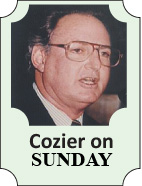 If it rarely satisfied the skeptics, the question-and-answer sessions at least revealed the reasoning behind the choices.
If it rarely satisfied the skeptics, the question-and-answer sessions at least revealed the reasoning behind the choices.
Butts summoned no such forum this time. Perhaps the euphoric hangover of last month’s T20 World Cup triumph and the general satisfaction in the composition of this squad persuaded him that it wasn’t necessary.
What adverse comment there has been mainly surrounds off-spinner Shane Shillingford’s absence. Enlightenment on that score alone would be helpful.
Tom Lafond, Shillingford’s fellow Dominican and former Windward Islands team manager, was quoted as saying he was “really flabbergasted” calling the preference for the uncapped left-arm spinner Veerasammy Permaul “a travesty” before going on to the ironic non sequitur that the recall of Kirk Edwards, the Barbados batsman, led to his concern that “we are going back to the days of insularity.”
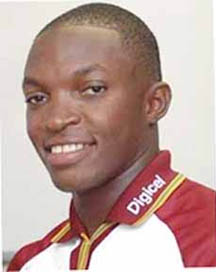
As predictable as that was, and without Butts’ account, we can only speculate on how he and his colleagues, Courtney Browne and Robert Haynes, came to replace a spinner with 29 wickets in eight Tests (albeit at 44.79 each) who claimed 10 wickets in a Test against Australia as recently as last April with one whose reputation has been made against India ‘A’ in the Caribbean in July and on the Sagicor High Performance Centre’s tour of Bangladesh in September.
A logical deduction would be that, in the unlikely scenario that two spinners are required, the other should turn in the opposite direction to Sunil Narine, a certainty in the starting 11 who, for all his mysteries, is basically an off-spinner. As it is, Marlon Samuels and Narsingh Deonarine, two accredited batsmen, have also proved themselves handy off-spinners.
In other words, to add Shillingford, although a fine bowler whose spirit is evident in overcoming the trauma of adjusting his flawed action, would be overkill; without Narine, he would be an automatic pick. Unless Narine is injured, overcome by the bowling yips or commits himself fully to global T20 franchises, such a scenario won’t change.
The dilemma, of course, is what happens should some misfortune indeed eliminate Narine from a Test (or both) in Bangladesh. It would place a heavy responsibility on Permaul but, quite apart from his bowling, his elevation to the ‘A’ team captaincy against India ‘A’ had already flagged the selectors’ confidence in him.
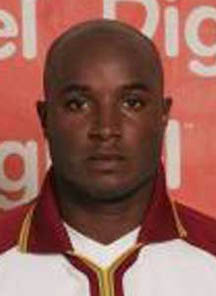
On experience alone, Sulieman Benn and Nikita Miller, both left-arm spinners, have claims stronger than Permaul. The evidence is that neither seems to fit into the present scheme of things, perhaps, but not solely, as they are both past 30 while, at 23, the Guyanese has more of a future.
It is a year since the West Indies were last in Bangladesh for a couple of Tests, one T20 and three ODIs (the upcoming tour is in the first year of a renewed ICC Future Tours Programme). A lot has happened since in the 11 Tests, 17 ODIs and five T20s against India and England away and Australia and New Zealand at home, quite apart from the World T20 triumph in Sri Lanka.
For the return to Bangladesh for the Tests, Shillingford (who was there but did not play a single match in Bangladesh and India last year) is not the only one replaced. So too are Fidel Edwards, Lendl Simmons, Adrian Barath, Davendra Bishoo and Kraigg Brathwaite.
Edwards set up the second Test victory last year with a typically explosive new ball burst of the first five wickets that left the first innings in ruins at 59 for five.
It was his 11th haul of five wickets or more in an innings but he has somehow lost much of his venom in the interim as well as being deserted by the luck all bowlers need.
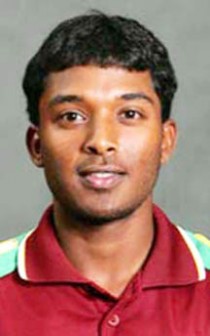
He hasn’t reproduced such devastation in his last 11 Test innings, managing no more than one wicket in all but one (in which he had two). The upshot is that he has been supplanted by Kemar Roach (who was his understudy last year) and Ravi Rampaul with the new ball.
Edwards’ exclusion was not unexpected but, if only for the feel of touring, his place might have gone to one of the up-and-comers (Delorn Johnson, Shannon Gabriel, Sheldon Cotterell) rather than Tino Best. Still fast, fit and eager, he is in the twilight of his best years at 32 and, in the conditions, unlikely to feature in the first 11.
The major disappointment is that Bishoo, Barath and Brathwaite remain at home.
Bishoo, the tough little leg-spinner, was the ICC’s Emerging Cricketer of the Year 2011. His prospects could hardly have been rosier. Now he is back in the ‘A’ team, attempting to rediscover the magic of his most difficult art.
The young guns, Barath (22), Brathwaite (19) and Keiron Powell (22) shared the post left vacant at the top of the order during the protracted absence of Chris Gayle.
Barath, the dashing little right-hander with the advantage of a debut hundred against Australia, seemed to be in pole position to keep his place on Gayle’s return. He hasn’t.
Whenever he appeared well set in his last eight consecutive Tests, untimely impetuosity led to his dismissals – and now his exclusion.
Brathwaite’s remarkable powers of concentration that brought him a truckload of hundreds at junior level were confirmed in his nine Tests but so were his technical blemishes.
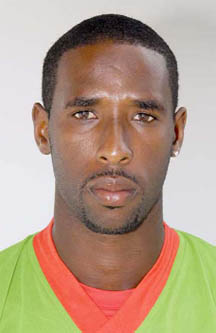
There is ample time for him to correct them.
By process of elimination, the stylish left-hander Powell got the spot on Gayle’s return and immediately secured it with his 134 and partnership of 254 with the returning Jamaican against New Zealand.
What Butts might point out is the several encouraging options open to the selectors.
Like Permaul, others have stepped forward from the ‘A’ team and the High Performance Centre’s trip to Bangladesh. Their performances add more than usual significance to next season’s first-class tournament.





